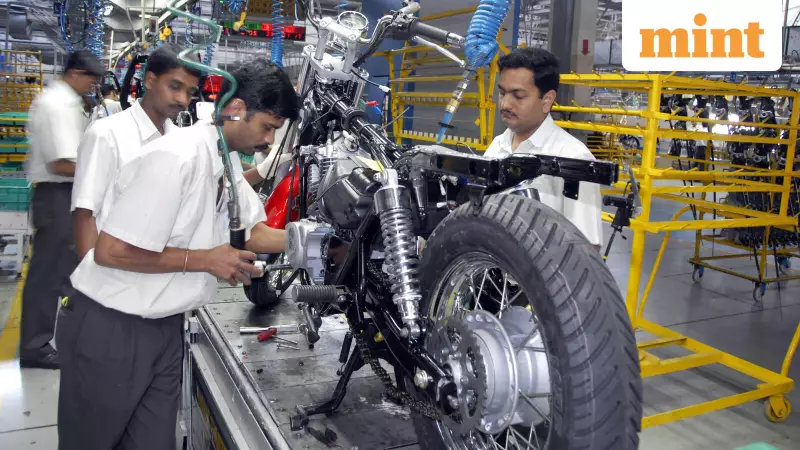
In a significant development for India's automotive sector, leading anti-lock braking system (ABS) manufacturers Bosch Ltd and Endurance Technologies have declared their readiness to handle a potential surge in demand. This announcement directly counters concerns raised by major two-wheeler manufacturers about supply constraints if the government implements a draft mandate requiring ABS on all two-wheelers from January 1.
Supply Readiness vs. Industry Apprehensions
Currently, ABS is mandatory only for two-wheelers with an engine capacity exceeding 125cc, which constituted just 16% of the total 19 million units sold in FY2025. The proposed rule would extend this safety feature to the entire market, a move being resisted by bike and scooter makers primarily on cost grounds and supply fears.
However, the two largest ABS suppliers in India, who together hold a 60-70% market share according to Kotak Institutional Equities, have assured investors of their preparedness. This stance puts them at odds with the Society of Indian Automobile Manufacturers (Siam), which has been lobbying the government for a delay, citing an inability to meet the projected demand.
Capacity Expansion Plans in Full Swing
On a November 11 earnings call, Guruprasad Mudlapur, MD and CTO at Bosch India, expressed confidence in the capabilities of their sister company, Bosch Chassis Systems India Pvt Ltd. "In terms of capacities, we are very well prepared to handle the increased demand that's likely to come out of changes in legislation," Mudlapur stated.
Echoing this preparedness, Anurag Jain, Managing Director of Endurance Technologies, detailed ambitious expansion plans during a post-earnings call on November 13. The company has ordered a new production line that will boost its ABS capacity by 1.2 million units and is prepared to order a second identical line based on the final government decision, potentially raising its new total capacity to 2.4 million units.
"We have a line of sight to use that line but we'll have to see what is the timeline which comes under this new guideline," Jain explained. He added that the company's current capacity of 640,000 units will be fully utilized by the end of March 2026 and that they are strengthening their supply chain for key components like steel-braided hoses, valves, and ECU assemblies.
The Core Conflict: Safety Upgrade vs. Cost Inflation
The heart of the debate lies in the balance between safety and affordability. ABS is a critical safety feature that prevents wheel lock-up during braking, thereby reducing skidding and accidents. However, its installation is expected to increase vehicle prices by ₹3,000 to ₹6,000.
Major players like Bajaj Auto, Hero Motocorp, TVS Motor Co., and Honda Motorcycle and Scooter India fear this price hike will significantly dampen demand, especially for entry-level bikes which form the volume backbone of the Indian market. Executives from Bajaj Auto and Honda have publicly stated that the domestic supply chain is unprepared for such a massive and immediate shift, potentially increasing dependence on imports if the deadline is not extended.
Industry experts, however, suggest that scaling up supply is a manageable challenge. Som Kapoor, Partner at EY, noted that there is no significant technology gap to overcome for producing ABS in India. "There are many global companies present in the segment which are operating in India. Implementation of the norms would lead to a surge in business for these firms so they will be happy to take on the incremental demand," Kapoor said.
With key ABS suppliers asserting their capacity and the auto lobby pushing for more time, the government's final decision on the implementation timeline for the draft mandate is now highly anticipated.






